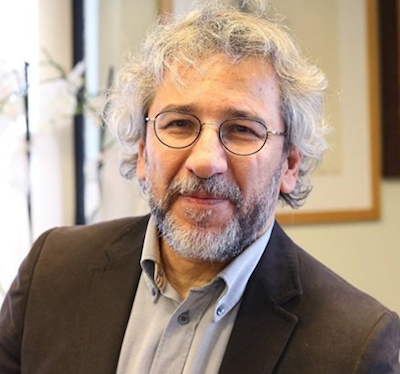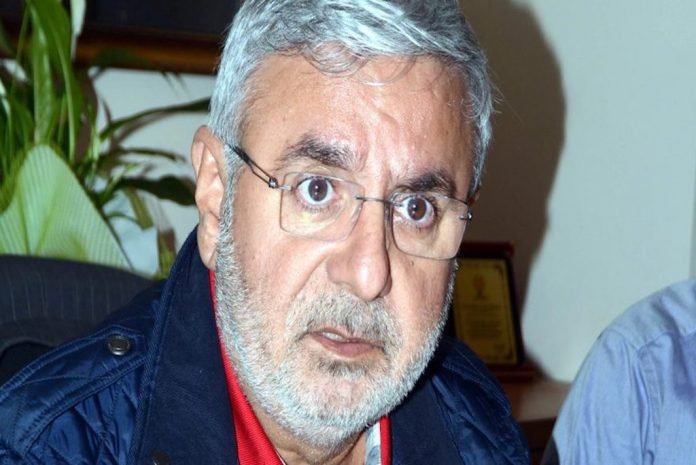Mehmet Metiner, a former deputy of Turkey’s ruling Justice and Development Party (AKP), has said some Turkish ministers and security officials were informed about a possible putsch 15 to 20 days before a controversial coup attempt took place in Turkey on July 15, 2016 but that they did not take it seriously.
Metiner, a columnist for the pro-government Star daily, was a deputy in parliament during the previous legislative term and a strong advocate of President Recep Tayyip Erdoğan.
“If the necessary lessons are not taken and this mental accounting is not crystallized as the new term’s policy, new [coup attempts] at various times will become inevitable,” he wrote in a column for Star on Thursday.
“If the country’s intelligence service was unable to get timely information about a coup attempt, if the army’s top management couldn’t recognize the existence of traitors nearby, then we need to think.”
He is not the only former AKP deputy to question the official story of the coup attempt, with Şamil Tayyar, a former legislator, also making controversial remarks on the putsch.
Right after a parliamentary commission report on the coup attempt was published in May 2017, Tayyar tweeted that “apparently we have to wait for the real story of July 15.”
In September 2017 Tayyar also said that if light were to be shed on the coup attempt people might realize that the “heroes” were “traitors” and vice versa.

Meanwhile, exiled Turkish journalist Can Dündar said in a commentary for German Radio Cosmo on Thursday that the coup attempt in 2016 and the infamous Reichstag fire in Germany in 1933 had many similarities, with both allowing the leaders of those countries to amass more power to oppress their opposition.
“On February 27, 1933, the Reichstag building of the German Parliament was destroyed by a fire, which is recognised as one of the defining moments in the Nazi takeover of Germany. The next day, German Chancellor Adolf Hitler issued a decree nullifying the civic liberties of German citizens and declared a state of emergency. Hitler started ruling the country by decree and amassing more powers, while at the same time pursuing a witch hunt against his opponents. He held elections in March, which were the last free elections in Nazi Germany, and got 44 percent of the vote, which was sufficient to turn Germany into a one-party state given the weakness of the opposition.”
“Isn’t this short history very familiar?” Dündar said on the anniversary of the declaration of a state of emergency right after the coup attempt was defeated by the Turkish government led by President Recep Tayyip Erdoğan.
“I can now comfortably say. July 15 was Turkey’s Reichstag fire. Erdoğan used this failed coup attempt and staged a successful coup,” Dündar added.
Similar to Hitler, Erdoğan declared a state of emergency following the coup attempt and started a witch hunt against opponents, Dündar said. He added that 450,000 people had been affected by the state of emergency, and that aside from members of opposition parties being jailed, more than 100 municipalities had been handed over to government-appointed mayors and that there had been more than 50 suicides, 130,000 public employees dismissed and almost 40 percent of the top ranks of the Turkish army discharged.
“Under these circumstances, in other words having tied the opposition’s hands and feet, the AKP held two elections within two years. Erdoğan won both and increased his power. And he changed the regime. Therefore, he no longer needs the state of emergency because he now has extraordinary powers that are legitimate according to the constitution,” Dündar explained.
“Now the question is: Will Turkey agree to wear this prisoner’s uniform, this straitjacket? Can a regime of oppression sustain itself when half of the population opposes it? The answer can again be found in German history. Let’s just hope our experience will end before it causes the level of destruction that happened in Germany,” Dündar said.
Turkey survived a controversial military coup attempt on July 15, 2016 that killed 249 people. Immediately after the putsch, the Justice and Development Party (AKP) government along with President Recep Tayyip Erdoğan pinned the blame on the Gülen movement.
Fethullah Gülen, who inspired the movement, strongly denied having any role in the failed coup and called for an international investigation into it, but President Erdoğan — calling the coup attempt “a gift from God” — and the government initiated a widespread purge aimed at cleansing sympathizers of the movement from within state institutions, dehumanizing its popular figures and putting them in custody.
Turkey has suspended or dismissed more than 150,000 judges, teachers, police and civil servants since July 15. On December 13, 2017 the Justice Ministry announced that 169,013 people have been the subject of legal proceedings on coup charges since the failed coup.
Turkish Interior Minister Süleyman Soylu announced on April 18, 2018 that the Turkish government had jailed 77,081 people between July 15, 2016 and April 11, 2018 over alleged links to the Gülen movement. (SCF with turkishminute.com & Ahval)















